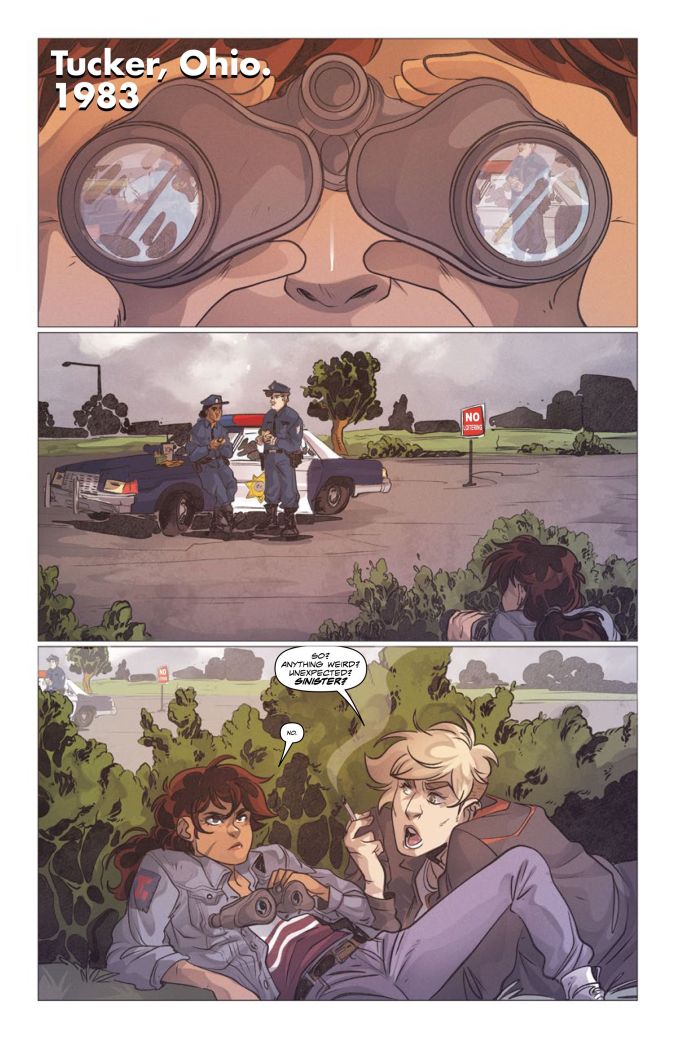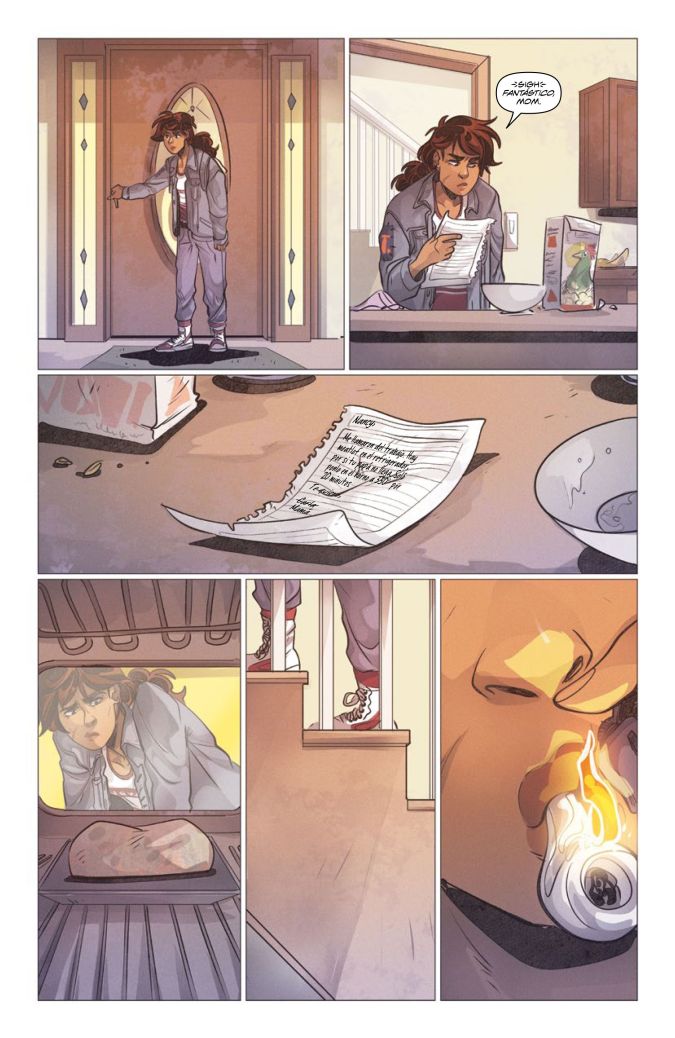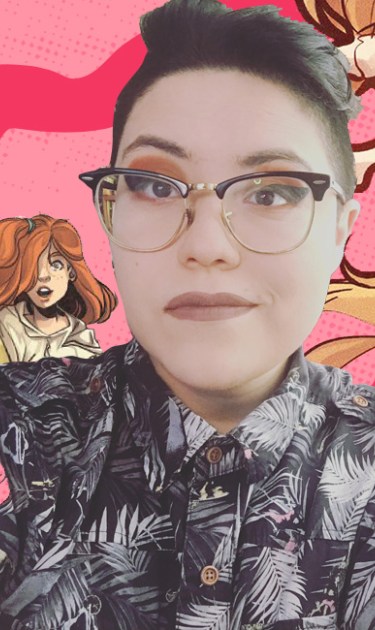After a series of disappearances in 1983 Tucker, Ohio, Nancy Salazar recruits her group, The Sick Sisters, to investigate the truth behind the disappearances. Created by writer Maggs Visaggio and artist Claudia Aguirre – who reunited after working together on Kim and Kim – Morning in America is a celebration of queer femmes and Latinx culture. With Visaggio’s character-driven narratives and Aguirre’s images of the coolest girls you either had a crush on or wanted to be, the reader gets an authentic story.
Aguirre is a queer comic artist living in Mexico City. And though the series is based in Ohio, it honors queerness both in the United States and Mexico City. Part of this is because, Aguirre has based aspects of Nancy on herself.

“It was [a] bunch of my experience, the way I dress, the way I saw the world entrenching how Nancy acts and emotes and express her helplessness and the fury to the system that is already failing them,” Aguirre tells me. “I think there’s a little bit of my own experience in there.”
Aguirre has always identified as a storyteller. When she was younger she convinced her parents to buy her comics and manga. “The logical conclusion was to do comics when I grew up.” Aguirre says.

For Aguirre, comics were an escape and a refuge where she could be herself.
“I think they helped me through the toughest part of growing up and as a little escape from the Catholic school that I was in at the time,” Aguirre adds. “The pressure from being in the closet and feeling so out of place got so bad I had a bunch of mental breakdowns, but they weren’t half as bad because I had fun stories I could draw for myself. I could draw the things I wanted to watch in media, people who were like me, who were heroes, and who were gay.”

This love for comics has provided Aguirre an outlet for her emotions, while allowing her to establish herself as a comic artist. She is the co-founder of Boudicka comics, a recipient of the prestigious Eisner Award, and she was nominated for a GLAAD award.
The history of queerness in Mexico City and Aguirre’s personal lived experiences have influenced Aguirre to represent queer Latinx characters in comics.
Mexico City currently has a lively LGBTQIA scene, but during the ’90s – when Aguirre was growing up – the city’s queer community didn’t feel as safe or accepted. Between 1995 and 2006, 126 queer individuals were murdered in Mexico City, according to la Comisión de Derechos Humanos. Of those who disappeared, 10 percent of the families identified the bodies but didn’t claim them, forcing them to be buried in common graves.
“Being a closeted, sad kid, there was no one I could look up to.”
Similarly, through the disappearances of students and the book’s darker themes, Morning in America recognizes the violent history that queer individuals have endured. But it also highlights more inspiring moments, particularly queer life as seen through Nancy’s friendships and relationships. These are especially necessary to highlight as women and queer bodies continue being under attack. As this happens, Aguirre feels a duty to depict positive images of queer Latinx femmes.
“When I needed it the most,” she says, “being a closeted, sad kid, there was no one I could look up to and say, ‘This is gonna be me someday.’ And now we can, and I don’t want anyone else to feel so alone anymore.”
To be able to tell this story through the art of comics has been an exciting and meaningful journey for Aguirre.
“It’s liberating,” Aguirre adds. “I feel like [comics] is a place for me to speak and to be the person I want to be and I hold it in a very special place in my heart because it was the first place where I felt safe to do so.”

Aguirre’s artwork fills out the pages of the book, but so do her words. She helped Visaggio write the Spanish peppered throughout the script, ensuring that it sounded authentic.
Although the characters are queer, it’s not their sole identity. This is a story about friendship and a group coming together to stop the world from ending at the height of Reaganomics.
“I think the more stories and the more variety we have, with characters who are queer but isn’t necessarily their whole personality, the more real representation we’ll have,” she says. “That’s what we want.”
With Morning in America, Aguirre and Visaggio hope to create a space where we can empathize with the struggles and issues covered in the book.
“We’ve always been intrinsically joined,” Aguirre says. “We have the same struggles, and I hope people can acknowledge there is a little bit of us in them and a little bit of them in us.”




